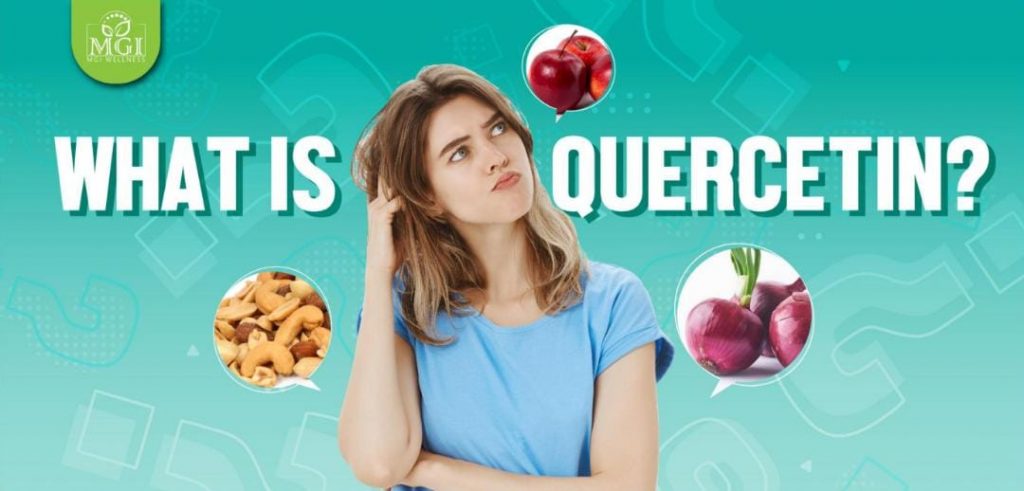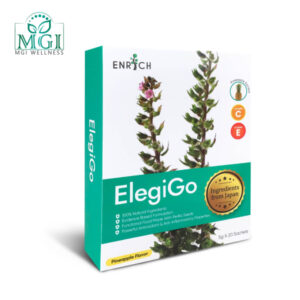Wellness
What is Quercetin
You might not have heard of “quercetin” before, but in fact, we can get it from fruits, vegetables, grains and tea that we consumed every day. The body does not make quercetin, so we have to get it from foods. Quercetin is a powerful antioxidant and a natural flavonoid that can be found abundantly in fruits and vegetables such as apples, grapes, berries, citrus fruit, onion, broccoli and kale.
Quercetin is one of the most abundant antioxidants in the diet and plays an important role in helping the body to combat free radical damage. It is found to has anti-inflammatory, anti-allergy and antiviral properties.
What does quercetin do in the body?
- Relieving allergy symptoms, a natural and highly effective anti-histamine
Quercetin’s most obvious and immediately noticeable benefit is the prevention of histamine-mediated allergic symptoms. According to a study, quercetin stimulates the immune system and restricts the release of histamine(an inflammatory chemical that is involved in allergy symptoms like itching and sneezing) in the body, relieving allergy symptoms in conditions like allergic rhinitis, sinusitis or eczema.(1)
- Preventing infections
Quercetin could have anti-bacterial and anti-viral properties. A study suggested quercetin may be useful in prevention and treatment of a wide range of viral infections, including upper respiratory tract infections (URTIs)such as the common cold and the flu. (2) It blocked several respiratory viruses from replicating inside the body.
- Reducing inflammation
Quercetin might help reduce both acute and chronic inflammation. A study reported that quercetin inhibits the action of inflammatory enzymes that would otherwise activate the immune system and cause inflammation. (3) Meanwhile, another study found that supplementing with 500mg
of quercetin a day helps lower levels of the inflammatory biomarker c-reactive protein (CRP) which is elevated in conditions like metabolic syndrome, sinusitis and atopic dermatitis. (4)
- Helps Protect Skin Health
Quercetin has a skin protective effect (soothing and anti-itch) against damage caused by a variety of factors such as UV radiation, histamine, or contact with toxic chemical compounds. The study concluded that quercetin is able to reduce redness, itching, and inflammation of damaged skin. It may also help restore skin barrier function, increasing hydration, and reducing water loss. (5)
- It may support cardiovascular and heart health
People who eat diets rich in flavonoid antioxidants tend to have lower cholesterol levels. Quercetin is a potent antioxidant that seems to protect the body from experiencing increases in LDL “bad” cholesterol and can help regulate blood pressure levels. One study in the Journal of the American Heart Association found that 500 mg of quercetin per day significantly reduced blood pressure level.(6)
References:
(1)Micek J, et al. Quercetin and Its Anti-Allergic Immune Response. Molecules. 2016 May 12;21(5):623.
(2) Kinker B, Comstock AT, Sajjan US. Quercetin: A Promising Treatment for the Common Cold. Journal of Ancient Diseases & Preventive Remedies. January 2014. 02(02)
(3)Anand David AV et al. Overviews of Biological Importance of Quercetin: A Bioactive Flavonoid. Pharmacogn Rev. 2016 Jul-Dec; 10(20): 84–89.
(4)M Mohammadi-Sartang et al. Effects of supplementation with quercetin on plasma C-reactive protein concentrations: a systematic review and meta-analysis of randomized controlled trials. Eur J Clin Nutr. 2017 Sep;71(9):1033-1039.
(5)Giada Maramaldi1 et al. Soothing and anti-itch effect of quercetin phytosome in human subjects: a single-blind study. Clinical, Cosmetic and Investigational Dermatology 2016:9 55–62
(6)Serban et al. Effects of Quercetin on Blood Pressure: A Systematic Review and Meta-Analysis of Randomized Controlled Trials. Journal of the American Heart Association 2016
Health Food
RM122.50


